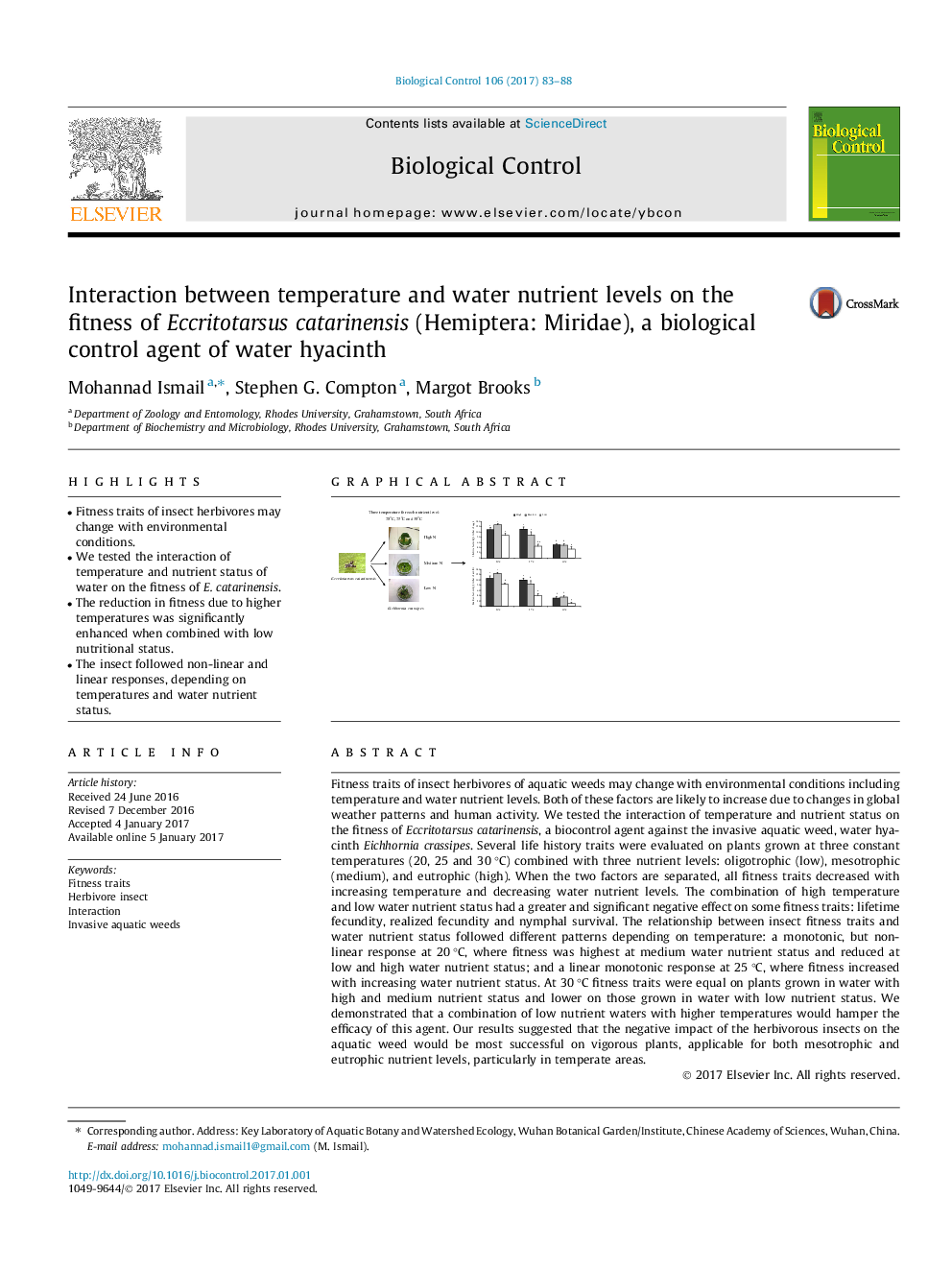| Article ID | Journal | Published Year | Pages | File Type |
|---|---|---|---|---|
| 5760683 | Biological Control | 2017 | 6 Pages |
â¢Fitness traits of insect herbivores may change with environmental conditions.â¢We tested the interaction of temperature and nutrient status of water on the fitness of E. catarinensis.â¢The reduction in fitness due to higher temperatures was significantly enhanced when combined with low nutritional status.â¢The insect followed non-linear and linear responses, depending on temperatures and water nutrient status.
Fitness traits of insect herbivores of aquatic weeds may change with environmental conditions including temperature and water nutrient levels. Both of these factors are likely to increase due to changes in global weather patterns and human activity. We tested the interaction of temperature and nutrient status on the fitness of Eccritotarsus catarinensis, a biocontrol agent against the invasive aquatic weed, water hyacinth Eichhornia crassipes. Several life history traits were evaluated on plants grown at three constant temperatures (20, 25 and 30 °C) combined with three nutrient levels: oligotrophic (low), mesotrophic (medium), and eutrophic (high). When the two factors are separated, all fitness traits decreased with increasing temperature and decreasing water nutrient levels. The combination of high temperature and low water nutrient status had a greater and significant negative effect on some fitness traits: lifetime fecundity, realized fecundity and nymphal survival. The relationship between insect fitness traits and water nutrient status followed different patterns depending on temperature: a monotonic, but non-linear response at 20 °C, where fitness was highest at medium water nutrient status and reduced at low and high water nutrient status; and a linear monotonic response at 25 °C, where fitness increased with increasing water nutrient status. At 30 °C fitness traits were equal on plants grown in water with high and medium nutrient status and lower on those grown in water with low nutrient status. We demonstrated that a combination of low nutrient waters with higher temperatures would hamper the efficacy of this agent. Our results suggested that the negative impact of the herbivorous insects on the aquatic weed would be most successful on vigorous plants, applicable for both mesotrophic and eutrophic nutrient levels, particularly in temperate areas.
Graphical abstractDownload high-res image (81KB)Download full-size image
